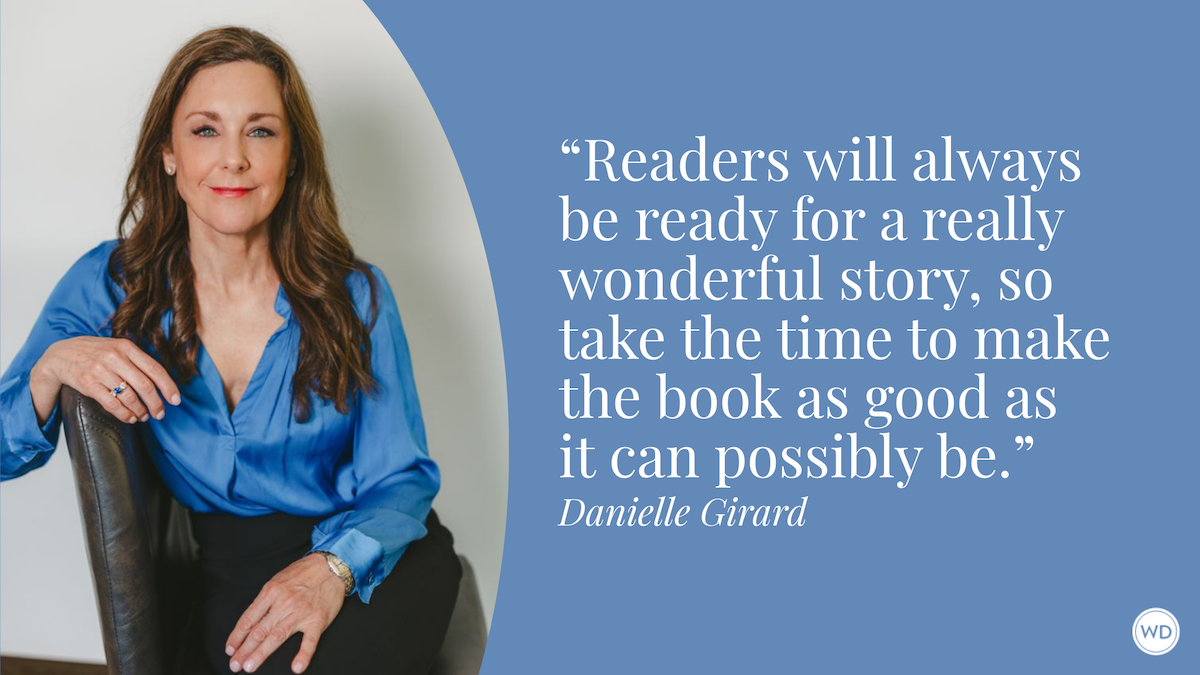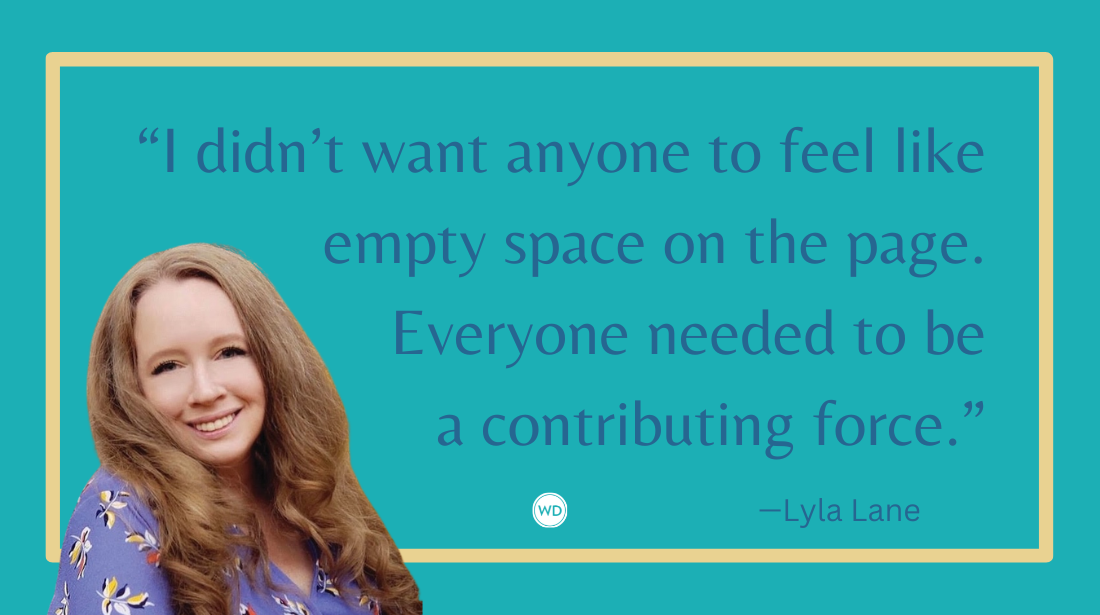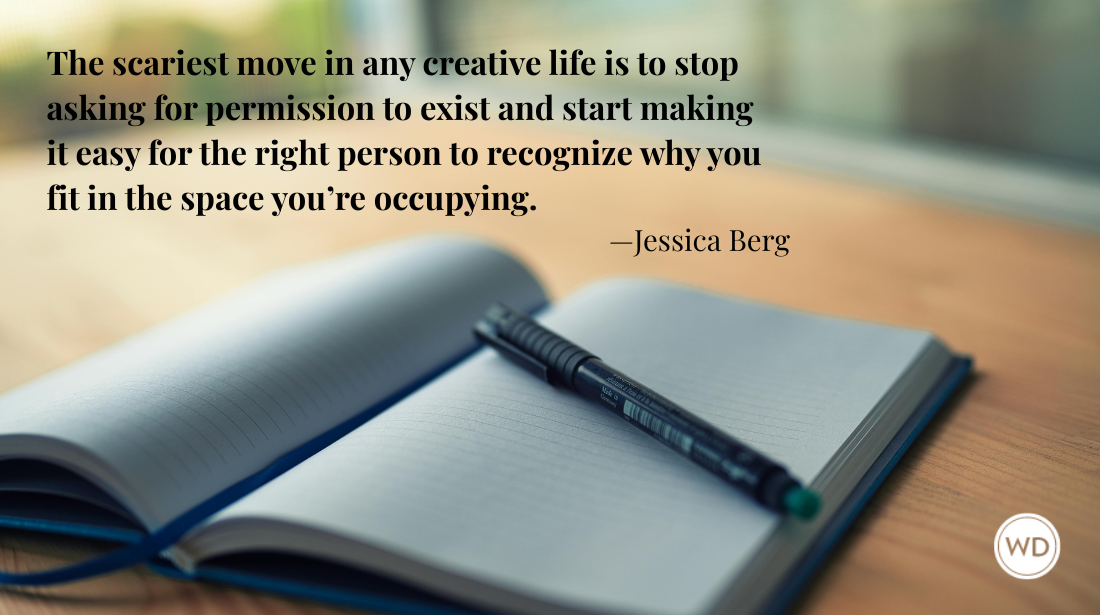How to Break the Rules of Writing (& More) According to Bestselling YA author Ransom Riggs
BY ADRIENNE CREZO Bestselling YA author Ransom Riggs talks about breaking rules, seeking balance, and telling stories through photography, film and text.
Like most first conversations and bad first drafts, my (WD's Managing Editor Adrienne Crezo) interview with Ransom Riggs begins with a discussion about the weather. And not just any weather, either, but peculiar versions of standard precipitation: dust storms, cloudbursts, thundersnow and tornadoes. Of course, Riggs is experiencing none of those phenomena as he sits in the warmth of the never-ending summer of Los Angeles. “I hate to tell you what it’s like here right now,” he says. “No, I don’t. It’s gorgeous. Just perfect.”
That kind of easygoing humor is familiar to Riggs’ fans. Readers of his New York Times bestselling young adult novel Miss Peregrine’s Home for Peculiar Children and its sequel, Hollow City, convene on Twitter (@ransomriggs) and Instagram (instagram.com/ransomriggs) to follow the seemingly unshakable optimism of a guy who really enjoys what he does. Life is uncomplicated for Riggs, as is his approach to work and writing. “[I never] set out to be a writer,” he tells me. “I took a fiction class [in college], but … I just thought, That’d be a fun thing to do for a semester, not, This is my future.”
Whatever dreams Riggs may have had about his future, he couldn’t have predicted the wild success of Miss Peregrine’s Home for Peculiar Children, a tale of time travel and magic set against the eerie backdrop of unnerving black-and-white photos of levitating girls and creepy twin clowns. Before Peculiar Children’s release in 2011, the film rights had already been snapped up by 20th Century Fox, and the movie, directed by none other than Tim Burton, is slated for release in summer 2015. Hollow City, second of the three planned Peculiar Children books, was released in January 2014. And in the midst of all this, Riggs also released Talking Pictures, a coffee-table book of found photographs, in 2012.
It’s easy to see why Riggs is enjoying the ride, but what appears to have happened overnight actually evolved over many years. It started with a love of film and photography, which led him to collecting old secondhand photographs. In 2009, Riggs was encouraged by an editor at Quirk Books to use the found pictures as the basis of a novel. At the time, Riggs was writing daily for mentalfloss.com, a popular general-interest trivia website, editing and filming short documentaries, and shooting photo essays as he traveled. He laughs to himself as he recalls his initial reaction to the conversation: “OK, Quirk. No one’s going to read that. Let me go back to blogging.”
Luckily, Riggs decided to take the editor’s advice. He compiled his found photos and wound a weird, twisting tale around them—and, in return, an eager YA audience turned the Peculiar Children series into an unlikely hit. Here, Riggs talks about his writing and social media habits, why he doesn’t follow rules, and why it’s important to take time off.
Your photo collection plays a huge role in the Peculiar Children books. Can you tell us how you started collecting people’s castoff snapshots?
I was at this swap meet in Pasadena [in 2009] called the Rose Bowl. I knew people sold old photographs, sort of in the corner of my mind, but I was never very interested in them … because they all looked like junk. But then I found a booth at this particular swap meet that was operated by a fellow named Leonard, who had clearly gone through many, many, many bins of photos and chosen his favorite 200 and put them in little plastic sleeves. I started looking at them and I [thought], Wow, there’s something really special here. This guy has the eye of a curator, and every [photo] is like a little piece of lost, orphaned folk art. That’s really cool! As someone who grew up loving photography in every way I could, I would have loved to have had a photo collection of my own, but I couldn’t afford to buy prints. … So I thought, Here is a way I could start my own little museum of photographs.You get to be your own curator; you’re rescuing them from the trash and saying, “I decide this is art, and I’m going to keep it.”
It occurred to me, as I collected more and more, that my taste in these photos ran in very specific directions. One was a sort of Edward Gorey-esque Victorian creepiness, and the other was photos with writing on them. I always felt like these were completely anonymous photos. … If they’ve written a little bit on the picture, especially if it’s more than just a label, if it’s a thought or a feeling or something revelatory, there’s a window into this lost world that suddenly has context where it did not before. That’s interesting.
Do you collect photos now solely for book material, or is it still a thing you just enjoy doing?
It’s still partly just a hobby. Maybe one day they’ll find their way into something I do, but maybe not. I just like owning them.
I started without anything in particular in mind to do with [the photos]; I just sort of wanted to have them. … And they’re not all creepy. There are so many I have that I love that are just sort of evocative in some simple way—the look on someone’s face, or a cool angle or interesting subject or something. I have a lot that I don’t even necessarily know that I’ll use—they don’t fit in the Peculiar Children books and they don’t fit in [Talking Pictures]. I just like them.
In Peculiar Children and its sequel, Hollow City, your protagonist, Jacob, has some pretty interesting magical powers, but he’s also a teenager with all the typical teenager woes. You’ve called Jacob your “fantasy self.” How much of you is in Jacob, really?
You’d have to be a literary critic or a psychiatrist to pick the writer out of his work. Every fictional story goes through this sort of blender process where you take some real experience … you know what’s real or true when you put it into the blender with fiction, and then it gets all mixed up with something that didn’t really happen, but there’s still a little of you in there. I think the writer is in there no matter what you do. You can’t really remove yourself from it.
Did you set out to be a novelist or did you have other plans?
No, I wanted to make movies. When I was a kid I wanted to be a novelist … but then around the eighth grade I discovered movies and I became completely obsessed and lost myself in this dream of making movies. My friends and I had a video camera, and we would make movies all the time.
I knew I wanted to go to film school, but I also knew I wanted to learn things first. I wanted to learn about the important ideas and read the great books, so I went to Kenyon [College], but always with the understanding that I would go to film school afterward.
[I] was chasing the white pony of having a film career [and] doing whatever I could do: making short films and editing things and freelance writing. The writing thing came about completely by accident. … I never really wanted [it], or looked for it. I feel like the opposite might be true, instead, where if I’d tried really hard to be a writer, maybe someone would’ve [asked], “Do you want to be a filmmaker instead?” And I would’ve [said], “OK”—the theory of inverse effort.
I think [filmmaking] was a way for me to get into novel writing, which is not something I might have done on my own. Now that I’m doing it, I find that with each Peculiar Children book I have to work harder to include photos. The story has all this momentum of its own now.
Will that momentum carry the Peculiar Children series beyond the three books you have planned?
This story that I’m telling now will conclude in book three, but I think I’ll leave the door open to that world. I’m going to do something else next, but I will probably come back and write more [books for the series] one day.
Do you follow any specific writing rules?
I always distrust overly specific writing advice. I don’t agree with it, necessarily. When you’re thinking about what to write or how to write something, it’s too easy to make a lot of arbitrary rules for yourself. I think the difficult thing with learning how to write is not learning the style or rules, but figuring out what story you want to tell.
I spent a lot of time telling the wrong stories, especially when … I was in college or when I was a kid trying to imitate C.S. Lewis or Stephen King. I never understood why my writing didn’t take off. I would think, Well, the sentences are correct, and the characters are talking and everything looks right, and it seems like a story. I did exactly what [they] told me to do, but there’s no blood in it and I don’t know why. It’s something you have to learn, how to tell the right stories for you, and it’s this completely ineffable thing.
What about schedules? Do you wake up some days and think, I’m not going to write; I’m not going to edit. Do you take days off?
Oh, all the time! Sometimes I say, “Today, I’m going to clean my house and go to the movies.” Or, “Today, [my wife] Tahereh and I are going to ride our bikes and go and eat too much Persian food.” That happens a lot. That’s a lot of our days, actually.
I spent the last three months plotting book three [of the Peculiar Children series]. So just in the last couple of days I’ve transitioned into writing actual sentences on pages of the book, and now that I have that momentum, I do want to write every day—at least a little, just to keep the thread. A lot, preferably, but between books I’ll go months and months without writing. It’s exhausting. I’m just like, “I can’t.”
That’s a long break between projects! It’s a wonder that you fall back into the groove at all. Is writer’s block ever a problem for you?
I don’t really believe in that whole “wait for the muse to strike” thing. I’m more of a “sit your ass in a chair and start typing” guy. … People treat writer’s block like it’s this kind of mythical, mystical ailment. It’s actually a very specific problem, and that is that something is wrong with your story, or wrong with your scene, and you’re trying to do something that is not motivated by your characters. If your writer’s block is so complete that you don’t even know where to start, it’s probably that you’re not spending enough time at the keyboard. It’s all part of the process.
I also think that writer’s block comes from judging yourself too much, and [thinking], I only wrote one sentence today! I’m terrible!
How do you keep yourself in a chair and working when you’re so active on social media?
I find myself retreating from social media when I need to work. I realize that I’m becoming too dependent on talking to everyone on Twitter. It’s too distracting. I’m constantly reaching for it, like a drug or something.
You can spend a whole day clicking and scrolling and feeling like you’ve gotten something done—Oh man, that was a really funny tweet—but then at the end of the day you’re like, I did nothing. All day, I’ve done nothing at all. I have nothing to show for it. Except that funny tweet, of course.
So you live in Los Angeles with your wife, bestselling YA author Tahereh Mafi. And you two work together. Do you share a desk?
Yes. It’s a very long desk, very wide. So there’s space enough for our things and our laptops and all our books, and we put on our noise-canceling headphones and [work]. That’s the thing about being married to another writer—we know all of the ways in which the other person is weird and quirky, because all writers are a little weird and quirky. So we [know we] need our quiet, broody time, but then we need to run around and go have fun when writing time is over—when work is over—because we’ve been kind of cooped up inside of our own brains all day. It works. Somehow it works.
You share a lot of your social media time with Tahereh, too, which your fans seem to love. But it seems as if it could become overwhelming at a certain point. Do you ever try to hold back?
I think we’re pretty knee-deep in it all, we read a lot of it. And it’s largely positive, which I think is pretty rare. I’ve been waiting for negative weirdness to start to surface, but it hasn’t yet.
I wouldn’t keep posting pictures of Tahereh on Instagram if people didn’t keep going, “Yay! Give us more,” you know? I feel like we both have been waiting for the Internet to collectively be like, “OK, gag me, it’s enough already!” But, bafflingly, it hasn’t happened yet, so we just keep going.
How about some parting advice for writers?
Just unclench, live your life and spend less time berating yourself. Anxiety and stress are the enemies of creativity.
***********************************************************************************************************************
Adrienne Crezo is the managing editor of WD. Follow her on Twitter @a_crezo.
Adrienne Crezo is the former managing editor of Writer's Digest magazine. Follow her on Twitter @a_crezo.







